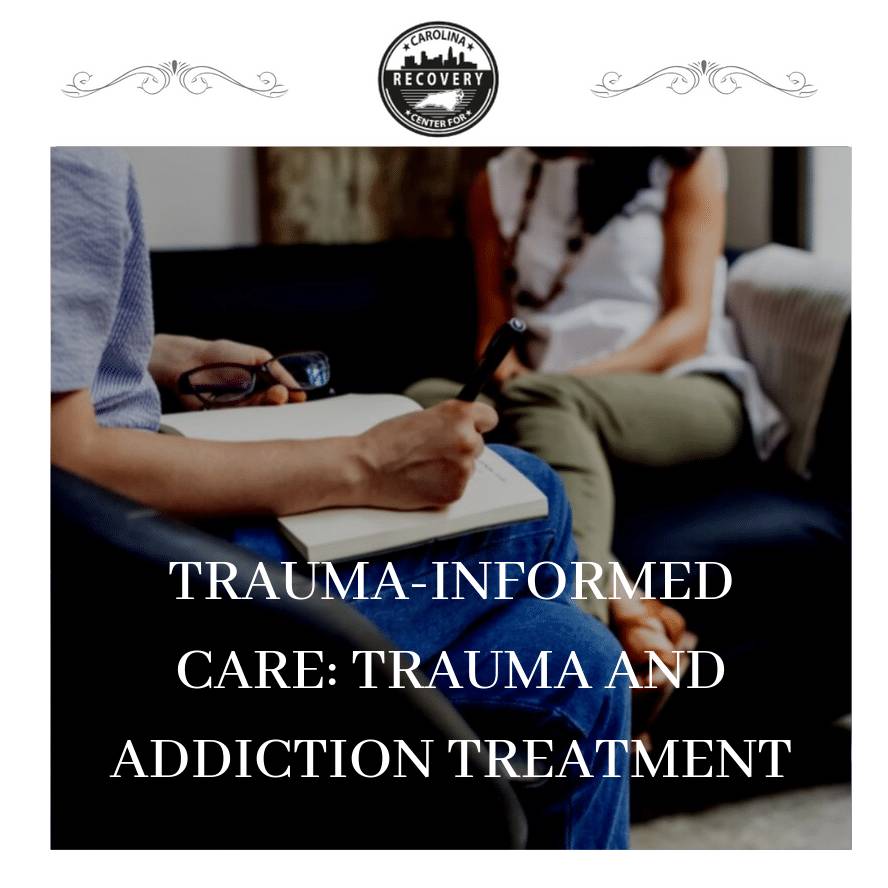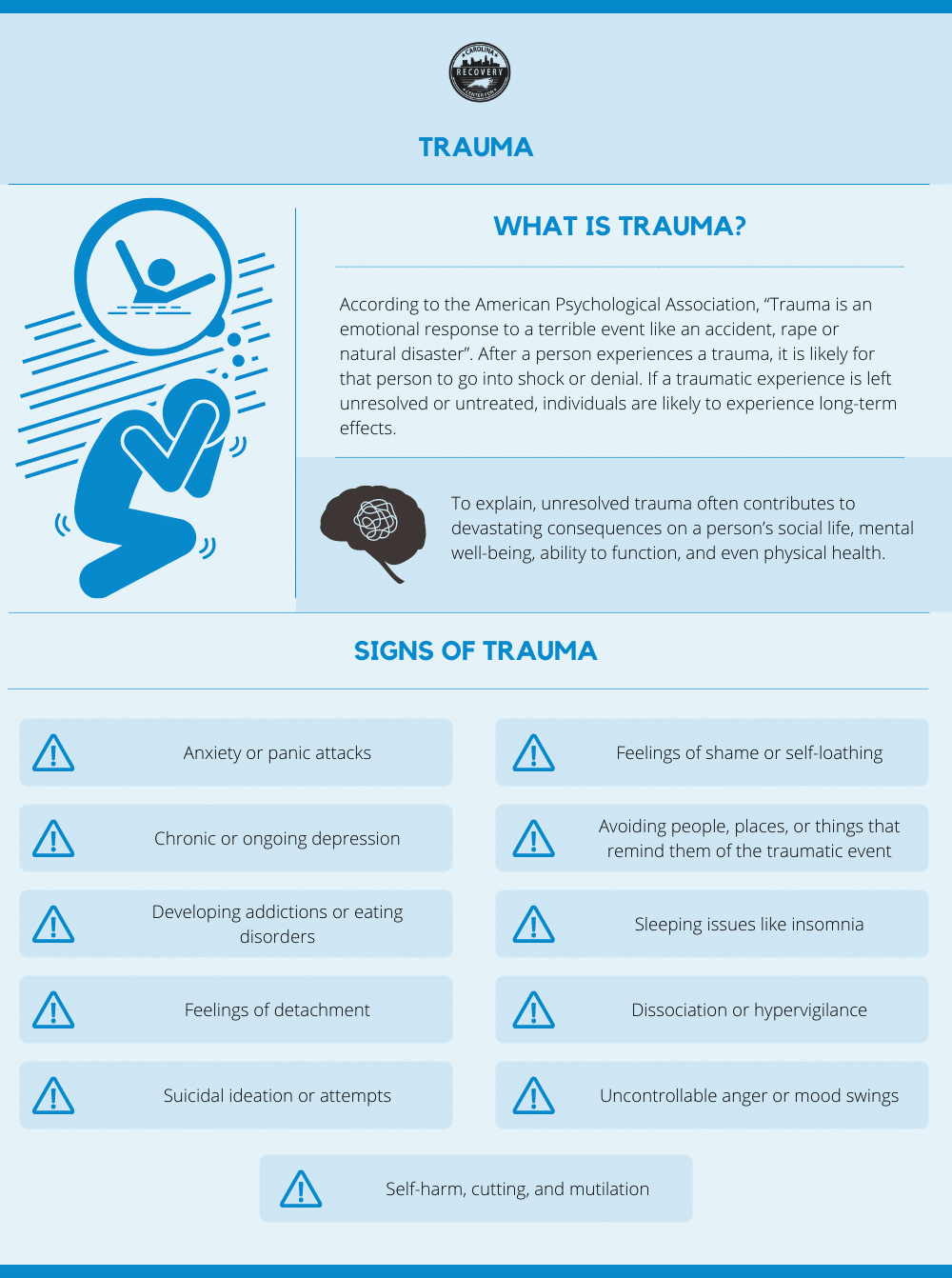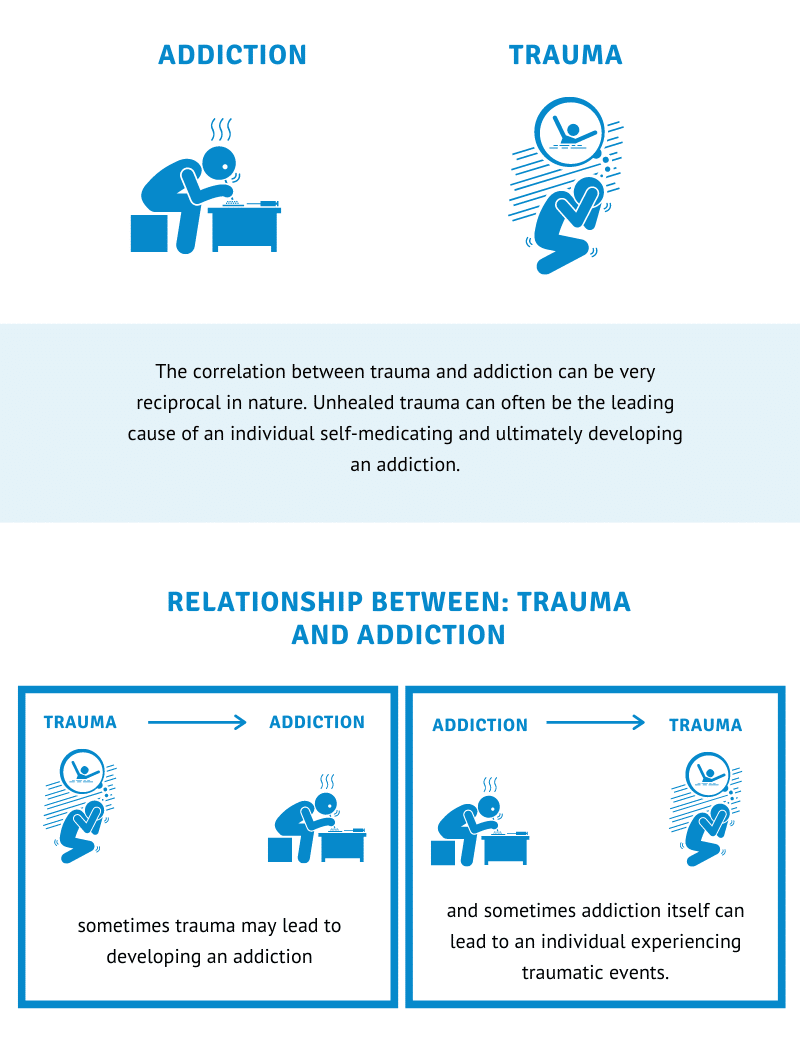Trauma-Informed Care: Trauma and Addiction Treatment

Medically Verified: 2/1/24
Medical Reviewer
Chief Editor

All of the information on this page has been reviewed and verified by a certified addiction professional.
Trauma-Informed Care: Trauma and Addiction Treatment
There are many factors that contribute to alcoholism and addiction. While the root of these disorders may differ, over the last few decades, many healthcare professionals have concluded adult alcoholism and substance abuse are closely related to trauma. Traumatic experiences often shape both mental processing and behaviors. The correlation between these two issues has reshaped the treatment approach and encouraged the use of trauma-informed care for addiction treatment.
What is trauma-informed care?
Trauma-informed care in addiction treatment is a treatment approach that acknowledges the consequences of trauma and addiction and utilizes the correlation between the two to cultivate healing of both issues simultaneously. This process includes trauma that may have triggered the addiction as well as trauma-induced by addiction and substance abuse behaviors.
According to SAMHSA, a trauma-informed approach in any setting includes the following components:
- Realizes the widespread impact of trauma and understands potential paths for recovery.
- Recognizes the signs and symptoms of trauma in clients, families, staff, and others involved with the system.
- Responds by fully integrating knowledge about trauma into policies, procedures, and practices.
- Seeks to actively resist re-traumatization.
In addition to the four essential elements described above, SAMHSA provides six key principles of the trauma-informed approach:
- Safety
- Trustworthiness and Transparency
- Peer support
- Collaboration and mutuality
- Empowerment, voice, and choice
- Cultural, historical, and gender issues
Although these four elements and six principles describe the goals and elements of trauma-informed care in any setting, this approach can be adapted to fit the needs of any specific mental health program. Each principle and element builds and contributes to creating an environment for understanding what trauma looks like and how to cultivate a healthy environment for treatment. Trauma-informed care is a generalized approach to treating mental health disorders associated with trauma and addiction.
Trauma and Addiction

The goal of trauma-informed care is to help recognize and personalize the individual needs of each client going through treatment. This specific approach aims to inform, connect, and encourage each individual throughout their recovery – from not only addiction but trauma as well.

Traumatic events vary and may look like some of the following:
- Physical or Sexual Abuse
- Being involved or witnessing an accident
- Witnessing a serious injury or death
- Experiencing a natural disaster
- Suffering bodily harm
- Witnessing abuse
- Experiencing abandonment
- Emotional Abuse
Processing traumatic events can be difficult and seemingly insurmountable. Many individuals often self-medicate with drugs, alcohol, sex, food, and other detrimental behaviors in order to cope with unhealed trauma. As a result of these behaviors, subsequent trauma may occur. In other words, early emotional and physical trauma may be linked to addiction and in turn addiction may lead to further trauma.
Every traumatic experience varies in nature and not every individual develops an addiction. However, here are a few of the common traits of trauma that lead to an individual subsequently developing an addiction:
- Traumatic event was completely unexpected
- Person felt powerless to stop or address the traumatic event
- Individual was unprepared for the event
- Person feels responsible for the traumatic event
- Individual did not have the proper support to address the event
- Individual did not have the proper coping tools to deal with the traumatic event.
Trauma-Informed Care and Addiction Treatment
Understanding the direct link between trauma and addiction has played a beneficial role in incorporating trauma-informed care in addiction treatment. The integration of trauma-informed care into addiction treatment cultivates recovery and resilience. Merging these two treatment approaches translates holistic care for individuals suffering from trauma and addiction.
The six principles of trauma-informed care, mentioned above, closely mirrors the principles and commitments to individualized care in most addiction treatment programs. Providing a safe environment during the detoxification process and establishing a foundation of trust, transparency, vulnerability, and community in treatment are general principles of addiction rehab programs.
Carolina Center for Recovery is a state-licensed substance abuse treatment facility. We are a dual-diagnosis facility with a primary focus on substance abuse.
We offer individualized, extended-term treatment in an intimate setting. Located in Charlotte, NC, a suburb of Charlotte, our team is comprised of doctors, clinicians, therapists, mentors, and recovery coaches with decades of experience in the addiction field. We take a holistic approach to treating addiction, trauma, and other co-occurring disorders. At Carolina Center for Recovery, we offer a variety of treatment modalities centered around identifying and resolving the underlying issues associated with the addiction. Each client enrolled in our program will receive individual attention from a therapist and psychiatrist as well as gaining exposure to a multitude of traditional and alternative therapies.

